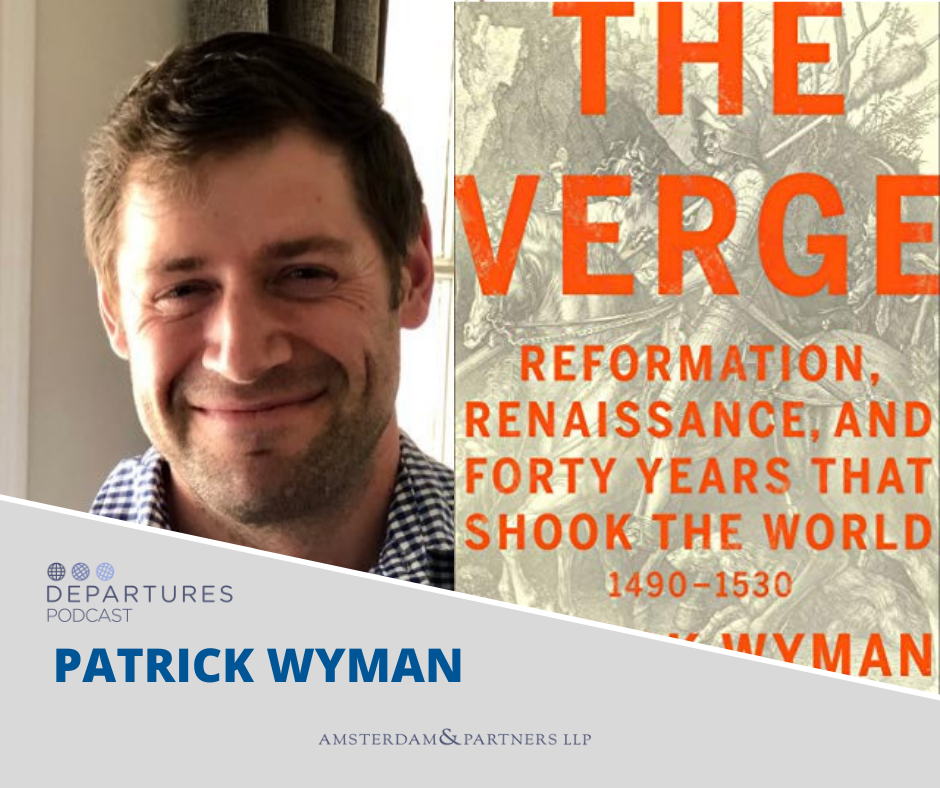Departures Podcast with Patrick Wyman, Author of ‘The Verge: Reformation, Renaissance, and Forty Years that Shook the World’

History is not a single continuum. There are certain stretches in which momentous change occurs in a very compact timeframe. The forty-year period between 1490 and 1530 is one of these bursts of revolutionary change.
In The Verge: Reformation, Renaissance, and Forty Years that Shook the World, Patrick Wyman, a historian and the host of the popular podcast Tides of History, argues that the turn of the 16th century was a momentous moment in history when Europe began to break off from the rest of the world and “became recognizably the global power,” ushering in the era of imperialism and colonialism – “the central problem of world history in the last 500 years.”
Rather than studying the centuries-long process that brought us into the modern era, Wyman looks at a particularly eventful period which began this “Great Divergence.” Europe at the turn of the 16th century featured the invention of the printing press, great sea voyages, the rise of modern finance, extreme taxation, among other revolutionary developments.
Of these, Wyman argues, the printing press – which allowed for the creation of mass media – is the single most important of these developments. Indeed, Colombus’ voyages were “a media event as much as they were a historical event. The two aren’t really separable.”
The period of 1490-1530 is especially notable for what Wyman describes as the “scaling effect.” While in the 21st century it seems almost obvious that a revolutionary invention would lead to rapid and massive scaling up. But at the turn of the 16th century, the rapidity of the scaling effect of everything from mass media to sea voyages “scaled in a way that would have been extremely foreign at this time.”
The Verge also tells its story through individuals which Wyman links with a broader theme. Famous figures such as Christopher Colombus and Martin Luther feature, as do lesser-known individuals such as the banker Jakob Fugger and printer Aldus Manutius. Wyman delves into an extraordinarily important period of European history that shaped our globalized present from multiple angles and refreshing nuance.











